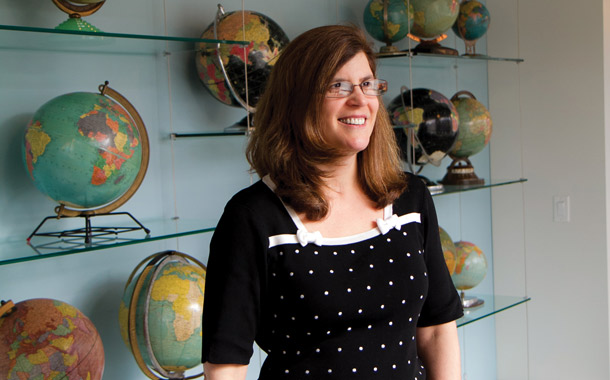On the National Democratic Institute ’s website (ndi.org), you’ll find all sorts of stories about NDI’s work abroad on behalf of citizen participation in open and accountable governments. Town hall meetings in Yemen, leadership academies for candidates in Kenyan elections, grants to a women’s leadership organization in Mexico – that sort of thing.
Making this all happen for this Washington D.C.-based nonprofit, and any other organization, institution or company that plans to thrive or at least remain extant, calls for some decidedly less glamorous number-crunching. Effective support of democratic processes in Yemen requires monitoring and reporting on the funds marked for that end. Clean audit reports are important for continued grant funding from USAID and the State Department, which together account for about 90% of the NDI’s budget.
“The people in the field wouldn’t be able to have as much impact with the critical democracy programming without the support from the home office,” says Sherri Kurtz Peters ’93, CPA, manager for budget and special projects at the NDI.
Peters joined NDI as a sub-grants manager a decade ago. In that role, she managed a staff that reviewed the finances of partner organizations and evaluated grant applications, a job that took her to Africa, South and Central America, Asia and the Middle East. After the birth of her second child, she switched positions to reduce job pressures. She now concentrates on NDI’s internal finances, reviewing and monitoring, among other things, an institutional budget that includes funding for the organization’s 65 field offices around the world.
In her final year at EMU, Peters had an opportunity to pursue a long-standing interest in working for the nonprofit sector through the Washington Study-Service Year (now known as the Washington Community Scholars’ Center). Under the Washington program for 1992-93, she interned at the Churches’ Conference on Shelter and Housing. After graduating with a degree in business administration and a minor in socio-economic development, Peters returned to D.C. to work for Manna, an affordable housing organization.
Peters then obtained her CPA license and spent six years as an auditor for Deloitte, one of the world’s “Big Four” accountancy firms, mainly working with nonprofit and real estate clients. She loved the job, but not the 70-hour workweeks it sometimes required, and was starting to feel a yearning to return to the nonprofit sector, perhaps focusing on economic development. (In one of her business classes at EMU, professor Spencer Cowles first inspired her to think about this sort of thing by highlighting the work of Mennonite Economic Development Associates, or MEDA.)
A call one day from a job recruiter led to an interview at NDI, where Peters was impressed by what she learned about the organization’s mission and work, understanding democracy as a necessary first step to further economic development. She accepted its job offer.
“We need people in every kind of job and position for the world to function,” said Peters, on the behind-the-scenes nature of her work. “[Number-crunching] is a very important part of making things happen.” — Andrew Jenner ’04
